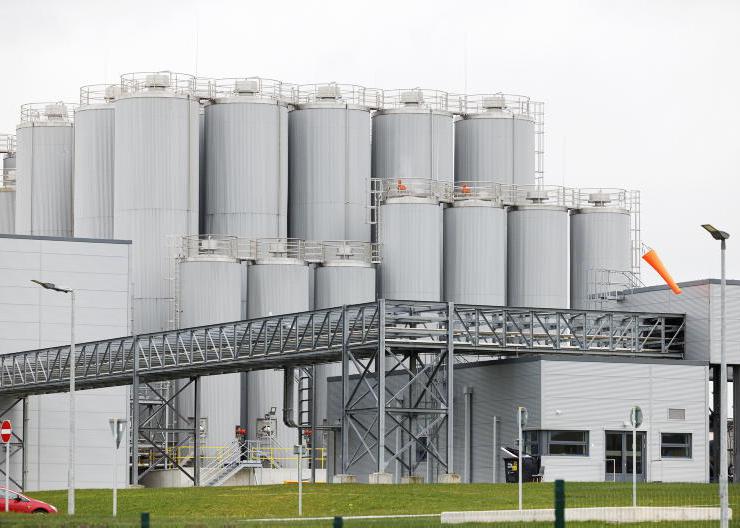Question: The tractor on my farm is pushing on in age, and I’ve been setting aside some money over the past year or so as I am considering buying a new one. However, new tractors are pricey, so I’m unsure whether to make the jump and buy a new tractor, or should I consider hiring the tractor? What are the pros and cons of each option and how should I decide which is best for my situation?
Answer: This is an interesting question, and one that most farm businesses have faced along the way. Deciding between hiring and a hire purchase (HP) agreement is an important choice that can have long-term implications for your farm’s financial health. To help you make an informed decision, let’s explore the key differences as well as the pros and cons of each.
Pros of hire purchase (HP)
Ownership: With a hire purchase (HP) agreement, you’ll own the tractor outright once you’ve made the final payment. The tractor will be a valuable asset to your farm, and you’ll have the flexibility to keep, sell, or trade the tractor as you see fit.
Interest rates: HP agreements usually have a fixed interest rate, meaning your monthly repayments will remain consistent throughout the loan’s term. This predictability is useful for budgeting and financial planning.
Tax benefits: Capital allowances are available on the tractor in the same way as if you had purchased it outright without finance. This can provide you with tax relief over the years, as the asset depreciates in value.
VAT: VAT is calculated up-front and is included in the purchase price, so you don’t have to worry about VAT on your monthly repayments. This keeps things simple.
Cons of hire purchase (HP)
Deposit required: HP agreements often require a significant up-front deposit. If you don’t have sufficient cash reserves, this could strain your finances.
Interest: You pay interest on the full amount borrowed from the start, which can make the overall cost higher compared to other financing options.
Less flexibility: Once you enter into a HP agreement, it can be costly to exit it early. If your financial situation changes, it might be difficult and expensive to adjust your repayments.
Pros of hiring
Lower initial costs: Hiring typically doesn’t require an up-front deposit, making it easier to get started, as there’s no significant initial expenditure.
Tax efficiency: Hire payments can be claimed as a business expense, which may reduce your taxable income. The entire cost of the hire can be written off over its term, offering immediate tax benefits.
Flexibility: Hiring agreements often provide flexibility at the end of the term. You can either continue hiring, purchase the tractor for a residual value, or return it and hire a newer model.
Maintenance and upgrade options: Some hire agreements include maintenance services, reducing your responsibility for repairs. Plus, hiring allows you to upgrade to the latest equipment more frequently.
Cons of hiring
Ownership: You don’t own the tractor at any point during or after the hire period unless you choose to buy it at the end of the hire term. This means you’re paying to use the equipment without building any equity for yourself.
Potential tax disadvantages: Unlike HP, you won’t benefit from capital allowances on hired machinery. Additionally, if you’re replacing older machinery, hiring might lead to an immediate tax liability on any profit from the sale of the old equipment.
Ongoing payments: Hiring requires continuous payments for as long as you use the tractor. Over time, this could be more expensive than purchasing outright.
Key considerations before deciding
There are clear pros and cons to both HP and hiring. So how do you decide which is right for you? Look at the bigger picture:
Your farm’s cashflow: If you have steady income and prefer owning your machinery, HP might be the better option. However, if your cashflow is tight and you want lower initial payments, hiring could be more suitable.
Tax implications: Consider the different tax treatments. HP allows you to claim capital allowances, while hire payments are fully deductible as expenses.
Duration and use: If you plan to use the tractor for many years, owning it through HP might offer more value in the long run. However, if you prefer to upgrade regularly, hiring provides more flexibility.
Future plans: Think about your long-term needs. If you need to upgrade equipment frequently or you anticipate significant changes in your farm operations, hiring provides more flexibility. If stability and ownership are more important, HP could be the way.
Noreen Lacey is head of banking with Ifac, which is the professional services firm for farming, food and agribusinesses
Read more
Money Mentor: should I keep my mortgage protection policy?
Money Mentor: we need to talk about pensions
Question: The tractor on my farm is pushing on in age, and I’ve been setting aside some money over the past year or so as I am considering buying a new one. However, new tractors are pricey, so I’m unsure whether to make the jump and buy a new tractor, or should I consider hiring the tractor? What are the pros and cons of each option and how should I decide which is best for my situation?
Answer: This is an interesting question, and one that most farm businesses have faced along the way. Deciding between hiring and a hire purchase (HP) agreement is an important choice that can have long-term implications for your farm’s financial health. To help you make an informed decision, let’s explore the key differences as well as the pros and cons of each.
Pros of hire purchase (HP)
Ownership: With a hire purchase (HP) agreement, you’ll own the tractor outright once you’ve made the final payment. The tractor will be a valuable asset to your farm, and you’ll have the flexibility to keep, sell, or trade the tractor as you see fit.
Interest rates: HP agreements usually have a fixed interest rate, meaning your monthly repayments will remain consistent throughout the loan’s term. This predictability is useful for budgeting and financial planning.
Tax benefits: Capital allowances are available on the tractor in the same way as if you had purchased it outright without finance. This can provide you with tax relief over the years, as the asset depreciates in value.
VAT: VAT is calculated up-front and is included in the purchase price, so you don’t have to worry about VAT on your monthly repayments. This keeps things simple.
Cons of hire purchase (HP)
Deposit required: HP agreements often require a significant up-front deposit. If you don’t have sufficient cash reserves, this could strain your finances.
Interest: You pay interest on the full amount borrowed from the start, which can make the overall cost higher compared to other financing options.
Less flexibility: Once you enter into a HP agreement, it can be costly to exit it early. If your financial situation changes, it might be difficult and expensive to adjust your repayments.
Pros of hiring
Lower initial costs: Hiring typically doesn’t require an up-front deposit, making it easier to get started, as there’s no significant initial expenditure.
Tax efficiency: Hire payments can be claimed as a business expense, which may reduce your taxable income. The entire cost of the hire can be written off over its term, offering immediate tax benefits.
Flexibility: Hiring agreements often provide flexibility at the end of the term. You can either continue hiring, purchase the tractor for a residual value, or return it and hire a newer model.
Maintenance and upgrade options: Some hire agreements include maintenance services, reducing your responsibility for repairs. Plus, hiring allows you to upgrade to the latest equipment more frequently.
Cons of hiring
Ownership: You don’t own the tractor at any point during or after the hire period unless you choose to buy it at the end of the hire term. This means you’re paying to use the equipment without building any equity for yourself.
Potential tax disadvantages: Unlike HP, you won’t benefit from capital allowances on hired machinery. Additionally, if you’re replacing older machinery, hiring might lead to an immediate tax liability on any profit from the sale of the old equipment.
Ongoing payments: Hiring requires continuous payments for as long as you use the tractor. Over time, this could be more expensive than purchasing outright.
Key considerations before deciding
There are clear pros and cons to both HP and hiring. So how do you decide which is right for you? Look at the bigger picture:
Your farm’s cashflow: If you have steady income and prefer owning your machinery, HP might be the better option. However, if your cashflow is tight and you want lower initial payments, hiring could be more suitable.
Tax implications: Consider the different tax treatments. HP allows you to claim capital allowances, while hire payments are fully deductible as expenses.
Duration and use: If you plan to use the tractor for many years, owning it through HP might offer more value in the long run. However, if you prefer to upgrade regularly, hiring provides more flexibility.
Future plans: Think about your long-term needs. If you need to upgrade equipment frequently or you anticipate significant changes in your farm operations, hiring provides more flexibility. If stability and ownership are more important, HP could be the way.
Noreen Lacey is head of banking with Ifac, which is the professional services firm for farming, food and agribusinesses
Read more
Money Mentor: should I keep my mortgage protection policy?
Money Mentor: we need to talk about pensions









SHARING OPTIONS